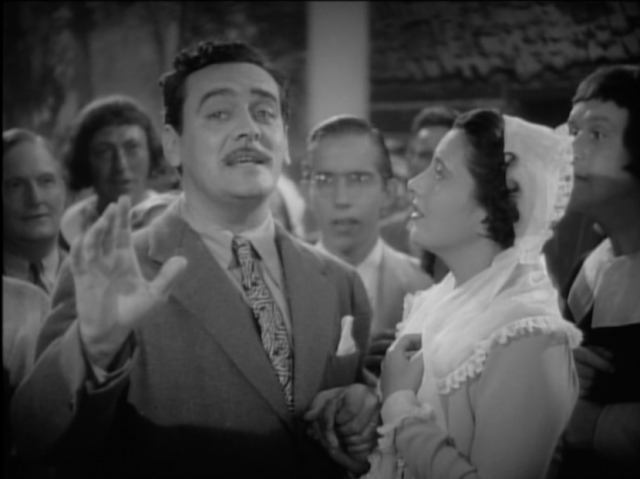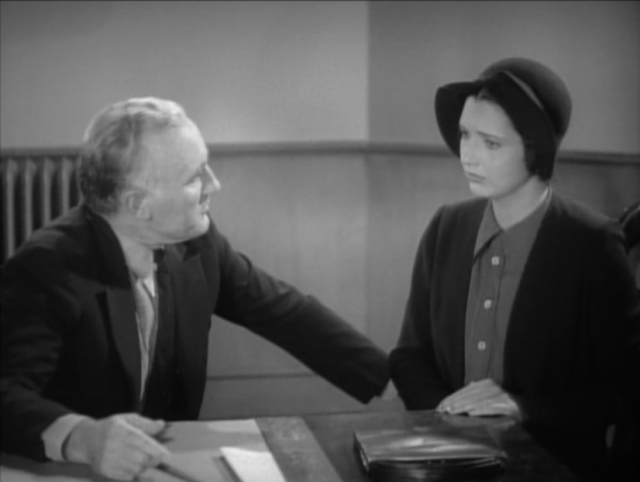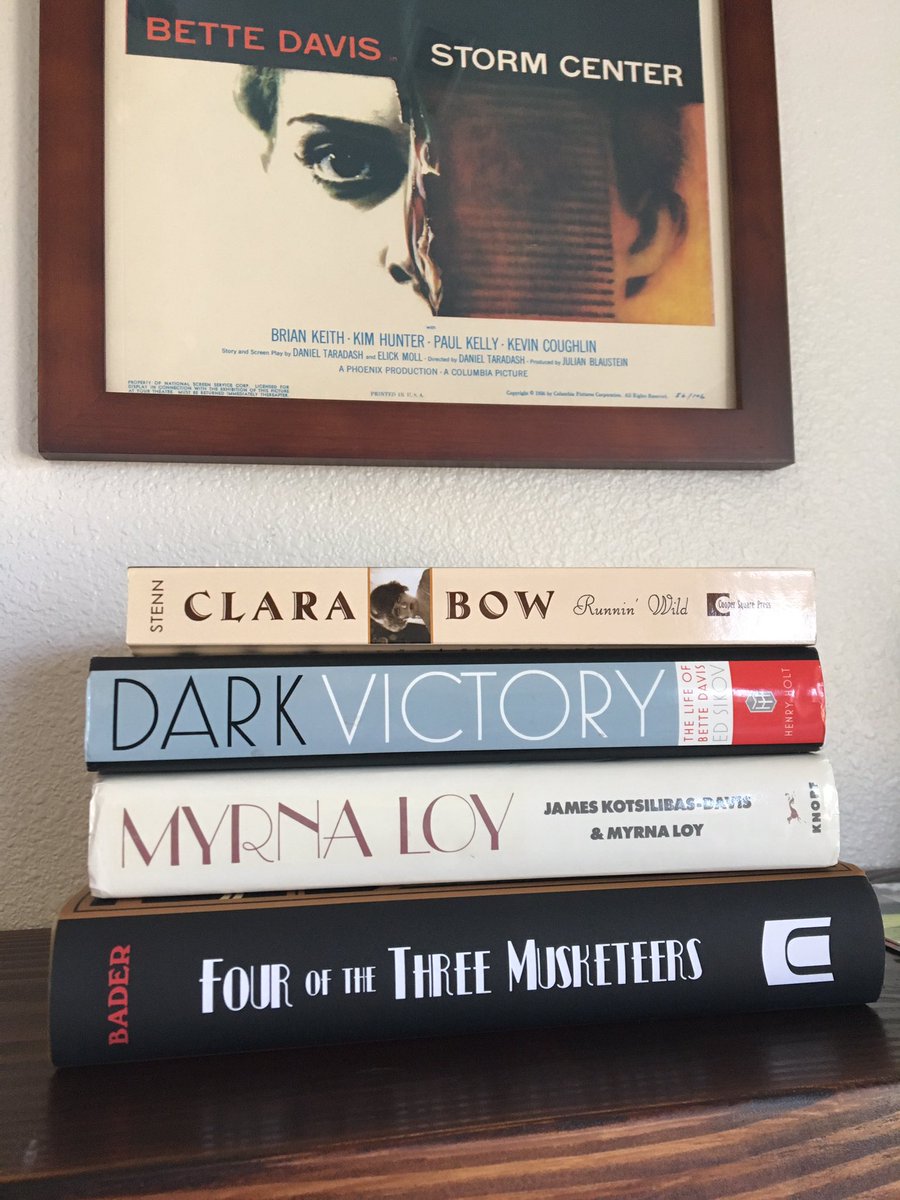 |
| Ian Keith and Kay Francis |
 |
| Donald Crisp and Kay Francis |
Comet Over Broadway (1938) was based on Faith Baldwin’s story for Cosmopolitan magazine. Baldwin was a prolific writer who published more than 80 novels, books of poetry and short story collections over her lifetime. Many of her short stories appeared in ladies magazines and several were adapted to film. Much like the character Eve, Baldwin wanted to be an actress. However she found herself more suited to being an author. In an interview Baldwin said, “people have to have some escape hatch, some way to get out of themselves, especially during the Depression.” Warner Bros. acquired the rights to Baldwin’s story for their production arm First National Pictures. Originally titled Curtain Call it was then changed to Comet Over Broadway. Neither title really suited the picture. The story was adapted for screen by writers Mark Hellinger and Robert Buckner. The script languished and was reworked by uncredited contributors Frank Cavett, Fritz Falkenstein and Brewster Morse. After many edits, it's unclear how much of Baldwin’s original story appears in the final product. She received a credit nonetheless.
The film was set to star Bette Davis who at the time was taking over Kay Francis’ title as queen of Warner Bros. Davis read the script and referred to it as "weak tea". There was already a lot of tension between Davis and WB and Davis was horrified that this was the first part assigned to her after her stand out role in Jezebel (1938). She refused to be in Comet Over Broadway and WB suspended her with no pay. Eventually the dust settled, Davis’ suspension lifted and she went on to make Sisters (1938) instead. Miriam Hopkins was set to replace Bette Davis but dropped out to make another movie. That’s when Kay Francis stepped in. Also its said that Ronald Reagan was supposed to play Bert Ballin, Ian Hunter’s part, but dropped out. According to Kay Francis biographers Lynn Kear and John Rossman, Francis struggled with a serious skin issue and weight gain. She received medical treatment and went on a severe grapefruit diet in order to continue filming.
The film was intended to be a major A level production for Warner Bros. According to the AFI, “when directors William Keighley and Edmund Goulding turned it down, the project was shelved. Then Bryan Foy took over the production in the B unit.” WB eventually assigned Busby Berkeley as director. Berkeley was best known for choreographing and directing music and dance sequences but he also directed a handful of films for the studio. Berkeley had to temporarily step down from production and director John Farrow came on to replace him. Most online sources say it was because Berkeley was ill. However, Berkeley biographer Jeffrey Spivak claims it was because he had to appear in court. In divorce proceedings Irving Wheeler accused Berkeley of stealing away his wife actress Carole Landis. The two had an affair while Landis and Wheeler were married but Landis claimed that she had been separated from Wheeler long before that relationship began. Berkeley and Landis were engaged after her divorce was finalized but never went through with the marriage.
Comet Over Broadway surprised me in many ways. It’s a drama with comedic moments. Minna Gombell who plays Francis’ wisecracking and kind-hearted sidekick, who is always “approaching 40”, is the film’s much needed comic relief. I really thought that, because of the era, Francis’ Eve was going to be punished for wanting to pursue a career rather than being content as a housewife. But throughout the movie it’s never suggested that she shouldn’t be working or that her profession was responsible for the tragedies in her life.
***SPOILER STARTS***
***SPOILER ENDS**
Comet Over Broadway is an enjoyable backstage drama peppered with moments of humor. I particularly enjoyed watching Minna Gombell and Sybil Jason in their scenes together. Ian Hunter, although second billed, is barely in the film and his character served more as a plot device than a meaningful character. I don't particularly care for Kay Francis but thought she was well suited for the part. The film does suffer from a weak script but all the surprises and Gombell's performance kept me interested.
Fun facts: Barry Nelson and Susan Hayward have bit roles. I spotted Hayward right away in a short community theater scene where she delivers a line or two to Francis. Also my good friend Jessica Pickens named her blog Comet Over Hollywood after this film. If you don’t follow her already make sure you visit her blog.
Comet Over Broadway (1938) is available on DVD-MOD from the Warner Archive Collection.When you use my buy links you help support this site. Thanks!
The Warner Archive trio George, D.W. and Matt discuss the film (about 15 minutes in) on the "You Can" episode of their podcast.
Warner Archive Wednesday - On (random) Wednesdays, I review one title from the Warner Archive Collection. Thank you to Warner Archive for sending me Comet Over Broadway (1938) to review!






















